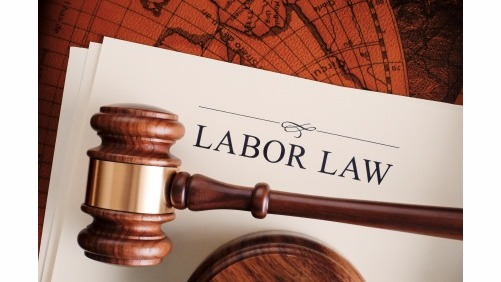“Elections have consequences” is something both Democrats and Republicans can agree on. Those words have never been truer when describing the potential impacts a Biden administration may have on workplaces. Historically, the Democratic party has relied upon union financial support, as well as individual union members in their political campaigns. In exchange for their support, Democratic administrations pass legislative and regulatory measures that benefit unions. The 2020 election mostly followed this pattern, and a Biden administration will honor it in every possible manner.
Organized labor has high hopes that a Democratic administration will mark the turning point in the 40+ year decline in union membership. The unionization rate in the U.S. currently stands at 10.3%. In the late 1950’s and 1960’s, it was above 35%. The 10.3% number includes both public and private employers. In the private sector, only 6.4% of workers are represented by a union, which is the lowest number in 75 years.
The Biden campaign’s plans on labor are replete with references to measures intended to reinvigorate union organizing and reverse their decades-long decline. The most significant proposed legislation is the Protecting the Right to Organize (PRO) Act. It was passed by the House of Representatives on February 6, 2020 but has stalled in the Republican-controlled Senate. One pro-union publication described the proposed law as follows: “If passed, it would mark the biggest change in U.S. labor law since Congress gave American workers the right to unionize in 1935.”
It would drastically tilt the playing field in favor of unions. Among the PRO Act’s more significant changes would be a provision to reinstate the National Labor Relations Board’s “quickie” election procedures, which substantially reduce the time between a union petition for an election and the date the election is held. An election could be held as quickly as 10 days after a petition is filed instead of the current 25-30 days. The proposed law would also ban mandatory meetings wherein employers speak to employees about the effects of unionization on the workplace. In an unprecedented change, it would also for the first time, subject employers to fines of up to $50,000 for each violation of the National Labor Relations Act (NLRA), as well as expose them to private lawsuits for such violations.
It would also ban employers from permanently replacing strikers and allow secondary boycotts, which have been illegal since 1947 because they harm uninvolved employers and employees. The PRO Act would also nullify “right-to-work” laws by permitting employers and unions to agree to require all workers to pay union dues. With a Republican Senate, though, the PRO Act stands little chance of becoming law.
On the administrative front, in addition to a labor-friendly Secretary of Labor, Biden will appoint the members of the five-member National Labor Relations Board (Board). Historically, the majority comprises members who support the administration in power. Therefore, the majority of Biden’s Board will espouse pro-union views. They will almost certainly reverse any pro-employer rules and applications of the NLRA adopted by the Trump Board.
The Biden plan for supporting union organizing efforts would go even further than the changes mentioned above. His 16-page pre-election campaign statement on labor issues also includes a pledge that he would ensure that federal contracts would only go to employers who sign neutrality agreements committing not to run any anti-union campaigns. This would, as intended, virtually guarantee a union victory in every organizing effort since the only information regarding unionization would come from the union. Additionally, the plan includes a multi-year ban from federal contracting for any employer who illegally opposes unionization.
The proposed pro-union measures that Biden advocates are not the only workplace issues that should concern employers. An early effort to raise the federal minimum wage, possibly to $15 per hour, is likely. While it would likely be staggered over several years, it would immediately raise the cost of employment. Additionally, Biden has already announced that OSHA will be directed to adopt a temporary safety standard on COVID-19, and to aggressively enforce compliance by all employers under threat of fines. Finally, it can be anticipated that the Department of Labor’s enforcement of legislation and regulations under its purview, such as wage and hour compliance, will become more aggressive. Cautious employers will begin a thorough review of all compensation policies and practices to ensure full compliance. Issues surrounding off-the-clock work and uncompensated overtime can create significant liability.
Another equally important proactive step to consider, given the major focus on increasing union organizing, is preparation for potential organizing in your workplace. The minimal presence of unions in today’s workplaces has resulted in a shocking lack of knowledge about unions among managers, supervisors, and employees as well. Managers and supervisors must know how to legally and effectively respond to union organizing activity if it arises. They must also sufficiently understand unions to be able to respond to potential employee questions. Providing truthful information to employees about the effects of unionization is never a wasted effort. It enables employees to make an educated decision on a critical workplace issue that could dramatically affect them and the company.
It would also be beneficial to consider taking steps to help make your workplace and workforce as resistant to the union message as possible. A few simple and straightforward actions could help in this regard. It is a documented fact that employees who feel appreciated by their employers and who feel that they are in the information loop about workplace matters are generally much less inclined to succumb to the union appeal. Many employers have also found that periodic all-employee meetings or “town halls” provide a good opportunity for the sharing of information and listening to employee concerns. Similarly, a truly effective “Open Door” policy where there are no repercussions for sharing issues and concerns makes it much less likely that those employees will seek a union.
Employers will be dealing with a decidedly pro-union Biden administration that will make every effort to support a reinvigorated union movement and aggressively enforce and expand workplace laws. Now is the time to prepare to legally and effectively respond to what is likely to be a challenging world for most employers for at least the next four years.
Thanks for reading CPA Practice Advisor!
Subscribe Already registered? Log In
Need more information? Read the FAQs




